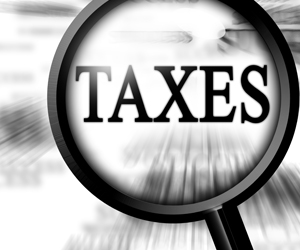While 2017’s Tax Cuts and Job Act (Act) passed Congress on December 22, 2017, many entities are continuing to assess the Act’s impact on their income taxes not only on a going forward basis but also on the deferred tax amounts which they had recorded at that date. Recently issued and forthcoming Internal Revenue Service (IRS) guidance will help with the going forward analysis. However, due to the complexity of both the Act and many of the assessments required to account for income taxes under ASC Topic 740, Income Taxes (Topic 740) many entities are continuing to finalize the impact of the Act on the balances recorded at the end of last year.
Under Topic 740, the impact of changes in tax rates and laws on existing recorded income tax balances is recorded in the year of enactment, which, regarding the Act, is the entity’s annual reporting year which contained the December 22, 2017 enactment date. This impact is recorded as a component of income tax benefit or expense from continuing operations. In recognizing the challenges in finalizing this impact, especially for calendar year-end entities the United States Securities and Exchange Commission (SEC) issued Staff Accounting Bulletin 118 (SAB 118), which provided financial reporting guidance for SEC registrants in each of the following scenarios:
- The entity has completed its analysis of the impact of the Act and fully recorded this impact, as per Topic 740
- The entity has developed reasonable estimates of the impact of the Act but has not completed, in part or in whole, its final assessment of the Act by its year-end reporting date
- The entity can not make reasonable estimates of the impact of the Act
SAB 118 provided financial reporting guidance for each scenario. Under SAB 118, entities which completed their assessment of the impact of the Act on recorded amounts should record this amount in the financial reporting period containing the enactment date of the Act. Second, for those items which the entity has not completed its assessment, it should record its reasonable estimates of the impact in the period containing the enactment date. Lastly, for those items for which the entity can not develop reasonable estimates, the entity should record its income tax accounting under the provisions of the tax law that existed prior to the enactment date. Entities must also make specified disclosures in each scenario.
If not completing this effort by the year-end containing the enactment date, the entity either must originally record or adjust amounts recorded as reasonable estimates in the measurement period, a period of up to one year from the enactment date. Accordingly, for a calendar year end reporting company, the entity should have recorded the entire impact of the Act either in its 2017 or 2018 financial statements. Amounts recorded in 2018 would also be recorded as income tax expense/benefit from continuing operations.
As SAB 118 is only applicable for SEC registrants, the Financial Accounting Standards Board (FASB) adopted the provisions of SAB 118 for all entities through Accounting Standards Update No. 2018-05.
A March 2018 PwC analysis of the Dow 30 indicated that 100% and 96% of entities analyzed had recorded provisional amounts related to the remeasurement of deferred tax assets and liabilities and the repatriation toll charge, respectively. So clearly, many entities, both public and private, were continuing to finalize their accounting for the impact of the Act well into 2018.
Changes to provisions dealing with such items as utilization of net operating losses and the elimination of the corporate alternative minimum tax impacted not just the computation of deferred tax balances, but also the assessment of the need for valuation allowances related to revalued deferred tax assets. Also, computing the repatriation toll tax payable required both computing 30 years of earnings and profits as well as applying a two-tier tax structure to that amount. Given the complexity of these computations, it is not surprising that such analysis continued into 2018. Also, other provisions of the Act similarly drove detailed analyses and assessments which could not be concluded by the end of 2017.
However, under SAB 118, the measurement period ends on December 22, 2018, by which time entities must have completed their analysis and recorded the final impact of the Act on balances that existed at December 22, 2017.
So what should entities do between now and year-end? Hopefully they have been whittling down their open item list in 2018 and, if an SEC registrant, recording either changes in estimates or the final impact in 2018 quarterly reporting. Both SEC and non-SEC entities must complete this task for their year-end 2018 year-end reporting as well as consider the need for any additional disclosures due to adjustments recorded in the measurement period.
With the adoption of new accounting standards related to revenue and leases already taxing many entity’s resources, they may have been tempted to let the finalization of this assessment linger until later in the year. However, time is quickly running out and, if not already completed, now is the time to develop a plan to finalize and record this impact by the end of 2018.
======
Rich Daisley, CPA, is Senior Director, Accounting and Financial Reporting Content for Surgent CPE. With over 26 years of experience in the accounting and auditing field, Mr. Daisley has worked in both the client service setting, mainly for PwC’s Capital Markets and Accounting Advisory Services Group and for PECO Energy’s Merger and Acquisition Group, and in the internal capacity setting as a course developer and facilitator creating leading training courses for PwC and Surgent. Rich lives in suburban Philadelphia.
Thanks for reading CPA Practice Advisor!
Subscribe Already registered? Log In
Need more information? Read the FAQs




